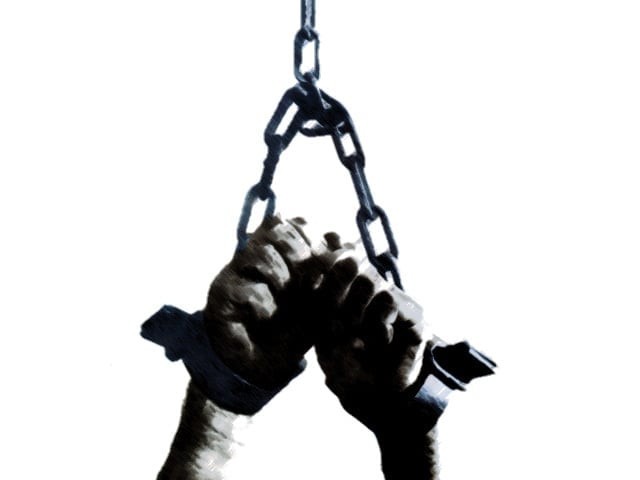Enforced disappearances: SC asks govt to submit policy paper on missing persons
The court says anyone involved in anti-state activities should be put up for trial.

The court says anyone involved in anti-state activities should be put up for trial. PHOTO: FILE
The Supreme Court on Tuesday asked the federal government to submit its policy on dealing with the issue of missing persons.
“It is the responsibility of the State under Article 9 of the Constitution to protect life and liberty of its citizens,” noted a three-judge bench, while hearing the case on the disappearance of Fazal-e-Rabi, who allegedly went missing on June 10, 2009 while crossing an army picket in Fata. The bench, headed by Chief Justice Iftikhar Muhammad Chaudhry, noted that it would also ascertain the progress of each case of missing persons and directed the Attorney General of Pakistan Munir A Malik to submit a detailed policy of the federal government regarding the matter.
The bench, comprising Justice Jawwad S Khwaja and Justice Sheikh Azmat Saeed, further listed all the cases of missing persons pending in the Supreme Court, its Human Rights Cell and the provincial high courts.
“The court at the apex level continues to take up the issue and work towards the recovering of the missing persons. We asked the Attorney General to point out the government’s policy as to what measures it would take to ensure that no person is subjected to enforced disappearances,” the bench further noted, adding that if anyone was found involved in any anti-state activities, he or she should be put up for trial in the competent court of law.

The bench did not accept the documents submitted by Tariq Lodhi, Director General of the Crisis Management Cell of the interior ministry which were said to be the government’s policy on missing persons.
The chief justice observed that a senior official of the government or the attorney general should file a policy statement by the federal government.
In another case, the three-judge bench urged the Rawalpindi police to exercise caution after the
Superintendent of Police (SP) Potohar division Haroon Joya had said they had obtained warrants for arresting a Brigadier Mansoor Saeed of ISI, from the court of Irfan Naseem Tarar, Civil Judge Rawalpindi, after the officer was booked for allegedly keeping unlawful custody of certain individuals.
Additional Attorney General Tariq Khokhar, informed the bench that Dr Imran Munir had informed a joint investigation team that he had seen Masood Janjua, husband of Amina Masood Janjua, in Brigadier Saeed’s internment centre, situated at Zakria Mosque Westridge Rawalpindi.
The court earlier had urged the police to register cases against all those persons who were being named by relatives of the missing persons for their alleged roles in disappearances.
Masood Janjua went missing in 2004 from Rawalpindi and there has been no clue about his whereabouts since.
In yet another case the bench directed Rawalpindi police to continue its investigation to trace Tasif Ali, husband of Abida Malik who alleged that Major Haider of Military Intelligence (MI) took away her husband last year and she had no information about him since then.
Station House Officer (SHO) Sadiqabad Malik Allahyar informed the court that his predecessor had registered a criminal case against Major Haider and even went to MI’s office in Mirpur to question him but was told that the major was not with the MI.
Commenting on the case, the chief justice observed that the case seemed to be individual in nature and that there would not be any involvement of the institution. The bench adjourned the hearing till July 31.
Published in The Express Tribune, July 24th, 2013.



















COMMENTS
Comments are moderated and generally will be posted if they are on-topic and not abusive.
For more information, please see our Comments FAQ